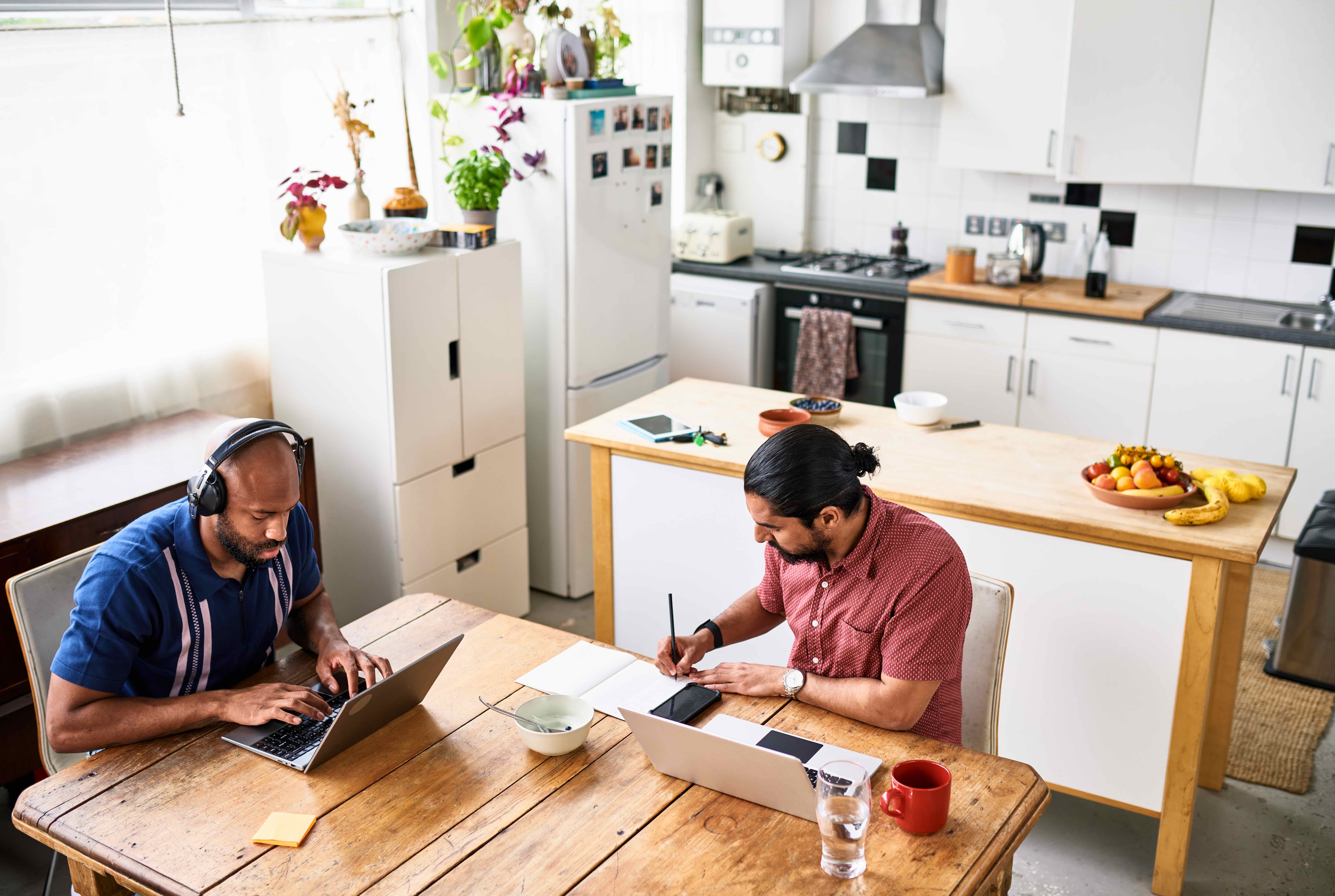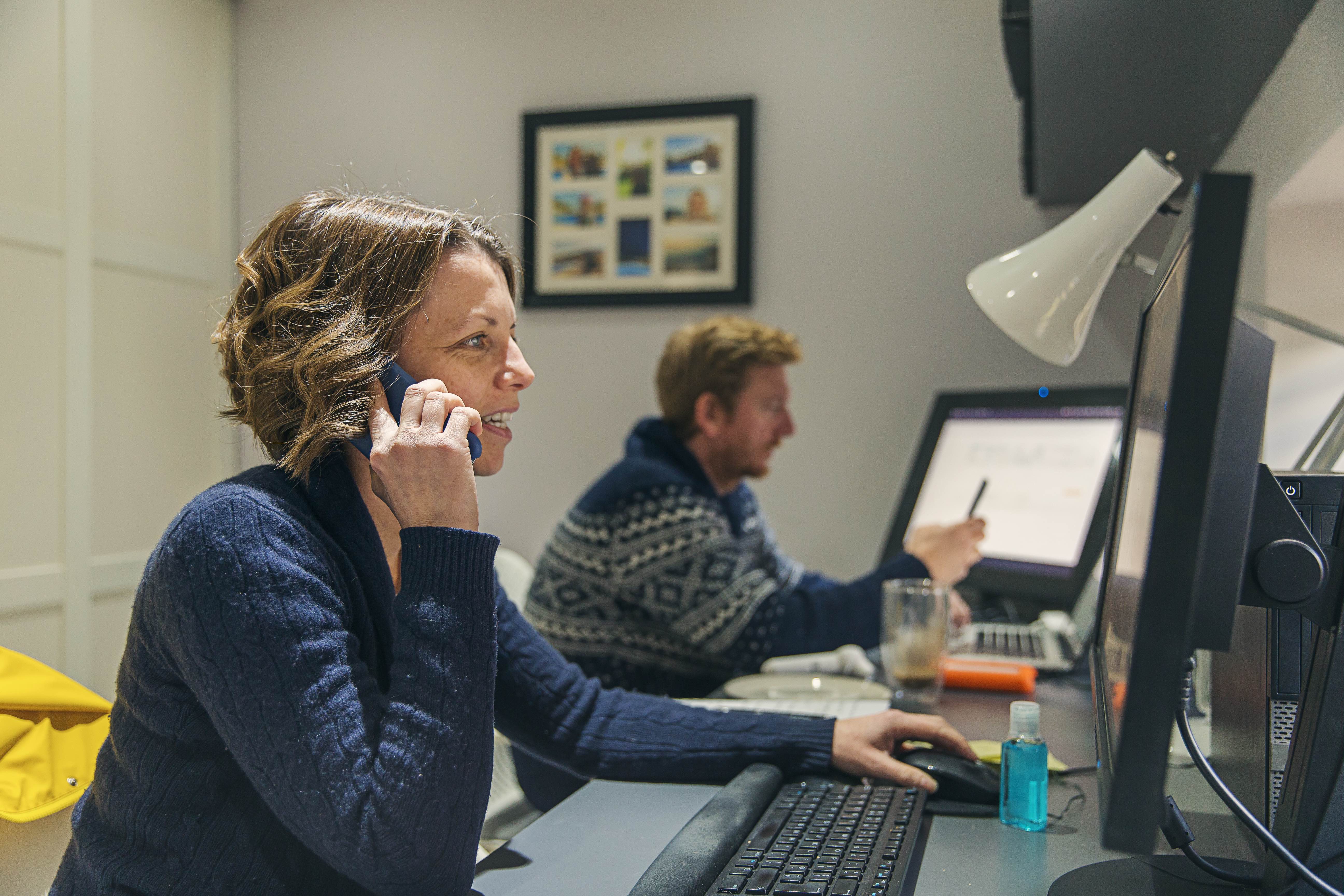
Politics & Society
The rise of the digital nomad

While work needs to take place somewhere, in a post-pandemic world, that somewhere can be anywhere. But is that a good thing?
Published 16 September 2022
COVID-19 sent shock waves that reverberated through most, if not all, our social, political and economic institutions – dismantling some and reconfiguring others.
In Australia, like the rest of the world, the government was tasked with the difficult balancing act of managing a public health crisis without shutting down the entire economy.

In the realm of work, the twin imperatives of social distancing and keeping the economic cogs turning forced the hand of many employers to introduce remote work policies and practices – some reluctantly.
Indeed, against long-standing convictions among business leaders that remote work was bad for productivity (claims that have since been debunked), our homes suddenly became our place of work.
Now, two years on, the untethering of white-collar work from its traditional home in the office has ignited a remote work revolution and transformed the contemporary labour landscape.

Politics & Society
The rise of the digital nomad
However, while remote work is celebrated by many for its potential to better integrate the competing and often conflicting demands of that coveted work-life balance, it’s important we guard against the overflow of work into more and more areas of our lives.
Researchers have already sounded the alarm, noting the appropriation of our living spaces through work-from-home policies and practices introduced during the pandemic.
While working from home has obvious benefits for employees, particularly those with childcare commitments, this domestic takeover comes at a financial cost.
For example, the heating and cooling of these new workspaces, the cost of desks, chairs and other equipment – perhaps even a larger home to a house with a dedicated office that isn’t the kitchen table.

These are all significant expenses currently offloaded onto workers without any monetary compensation.
Meanwhile, some, but certainly not all, employers are pocketing these savings in the reduction of their commercial real estate footprint and lowering their operational expenses and overheads by shifting the cost of the workspace onto their employees.
The result is an increase in profit margins with the workers left to foot the bill. While these may be unintended outcomes of the pandemic, they are exploitative practices straight out of the capitalist playbook.

Politics & Society
How Australia’s internal migrants could benefit our regions
However, it’s not just the home that’s under threat of a work invasion.
Cafes were already popular sites of labour for remote workers and digital nomads well before the pandemic. But a Google Trends search shows that more people are searching for cafes to work from than ever before.
The unleashing of millions of remote workers into these traditionally social spaces thanks to remote and hybrid work agreements threatens to take over and transform cafes into de facto workspaces, simultaneously altering their nature and reappropriating their urban function.
Like working from home, remote employees working in cafes also absorb production costs usually paid for by employers, this time through their consumption of say, several coffees and food.

Cafe owners, too, must bear some of these costs by accommodating them and their laptops.
To be fair, the growing popularity of cafes as workspaces points to broader structural issues that have been at play in the modern economy since the 1970s.
In Australia, as in much of the post-industrial West, successive waves of neoliberal economic restructuring and reform began introducing greater “flexibility” into contemporary labour relations to improve business competitiveness and reduce unemployment.

Arts & Culture
A nomadic sense of home
But the result of these government-sanctioned changes has been less job security and systemic forms of precarious employment like freelancing, project-based contracts and the rise of the gig economy.
In the current economic climate, some companies are moving away from directly employing workers, instead preferring to outsource work to off-site (and increasingly online) independent contractors who are forced to seek out and pay for workspaces – like home, coworking spaces and increasingly cafes.
The ability to work from anywhere isn’t necessarily a cause for concern.
But while it promises to offer workers greater control and autonomy over their lives, the lack of clear boundaries between the worlds of work and leisure – as well as the unspoken assumption or expectation of constant availability and “always on” connectivity – can end up making it hard to disconnect from the demands of the office.

The result?
A paradoxical decrease in personal autonomy and an increase in self-exploitation as remote workers unintentionally find themselves working in more places, more of the time – basically anywhere with an internet connection, which is increasingly everywhere thanks to our mobile devices.
Also concerning is the increasing intrusion of the demands and dictates of work into our lives as it spills out of the office and into our homes and public spaces.

Business & Economics
Flexible working beyond COVID-19
What happens when cafes lose their social utility as community meeting points or “third places” and become dominated by people working on laptops? In a remote work future, who will bear the cost of production?
As the future of work debate continues to question the how, when and where of our labour, remote work’s broader social and economic implications are worth keeping a cautious eye on, lest we find ourselves living at work.
Banner: Getty Images